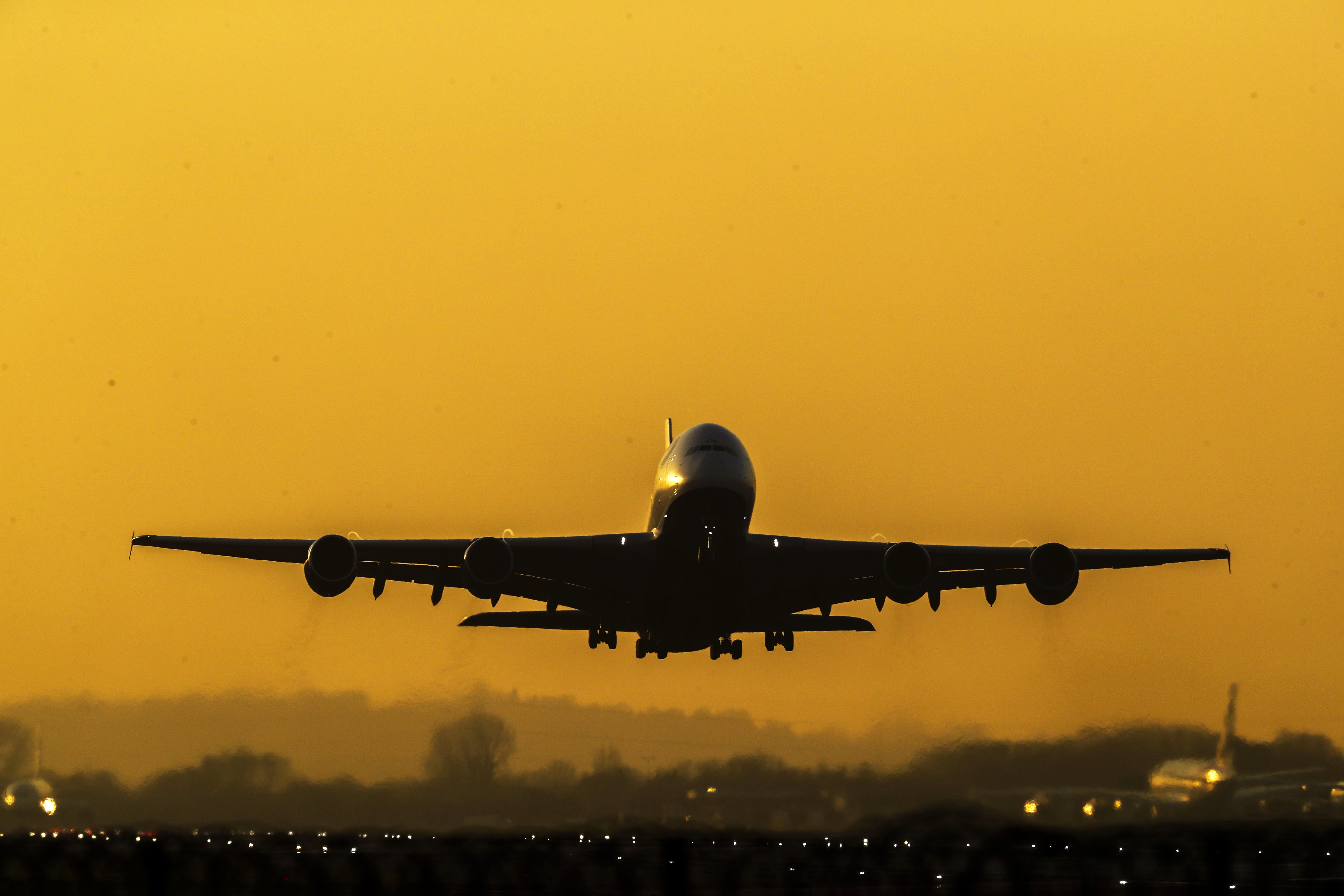Budget 2021: Tax to rise on ultra-long-haul flights, prompting fury from travel industry
‘Halloween horror for long-haul travellers,’ says Board of Airline Representatives in the UK

Your support helps us to tell the story
From reproductive rights to climate change to Big Tech, The Independent is on the ground when the story is developing. Whether it's investigating the financials of Elon Musk's pro-Trump PAC or producing our latest documentary, 'The A Word', which shines a light on the American women fighting for reproductive rights, we know how important it is to parse out the facts from the messaging.
At such a critical moment in US history, we need reporters on the ground. Your donation allows us to keep sending journalists to speak to both sides of the story.
The Independent is trusted by Americans across the entire political spectrum. And unlike many other quality news outlets, we choose not to lock Americans out of our reporting and analysis with paywalls. We believe quality journalism should be available to everyone, paid for by those who can afford it.
Your support makes all the difference.The aviation industry has reacted furiously to the chancellor’s announcement that Air Passenger Duty (APD) will rise for long-haul flights.
The increase of to £91 for an economy class flight above 5,500 miles will affect trips to key Asian and Latin American cities, including Hong Kong, Bangkok, Singapore, Tokyo, Buenos Aires and Santiago.
The Board of Airline Representatives in the UK (BAR UK) described the move to increase tax on flights over 5,500 miles as a “Halloween horror for long-haul travellers”. The organisation called the move “political posturing that undermines the industry’s net-zero commitments”.
Dale Keller, the chief executive of BAR UK said: “It is inconceivable that the Chancellor is choosing to suppress his ‘Global Britain’ aspirations and posture ahead of Cop26 behind a highly flawed environmental rationale.
“The British public won’t be fooled into thinking that the Government is investing their APD money to reduce CO2 emissions from air travel. This is another missed opportunity for the UK to lead on overhauling obsolete taxation policies that are undermining the huge investments in technology and infrastructure needed to drive the sustainable recovery of a critical sector of the economy.
“Airlines have committed globally to 2050 net-zero targets that require Governments to develop pragmatic policies and implement tangible interventions – not resort to tinkering with blunt and regressive taxation that fails to meet the expectations of the public or support the sustainability initiatives of the industry.”
Clive Wratten, chief executive of the Business Travel Association, said: “The introduction of a new ultra long-haul classification will unfairly impact business travellers at a key point in the recovery of our economy.
“The government said this was a Budget bringing in a new wave of optimism and yet business travellers will be heavily taxed to go to crucial destinations such as Singapore, Hong Kong and Australia.”
Travellers within the UK, meanwhile, will be incentivised to fly rather than travel by rail or sea from April 2023.
The current £13 each-way tax will be halved to £6.50, cutting the cost of domestic air travel and luring passengers from rail and road.
Airlines have questioned why travellers should have to wait for the tax cut. Jonathan Hinkles, chief executive of the UK’s biggest regional carrier, Loganair, said: “We’re heartened that the chancellor has clearly recognised the strategic importance of UK regional air services by reducing APD, and this move is also a vote of confidence in the industry’s extensive efforts to de-carbonise.
“It never made sense for domestic return flights – including to many outlying parts of the UK – to be taxed at double the rate of return flights to Europe.
“However, having recognised that, this measure could and should be implemented by April 2022 at the very latest, if the full benefit for the UK economy through restoring connectivity after the pandemic is to be realised. Why wait?”
The government says around nine million passengers will pay less APD in 2023-24.
Join our commenting forum
Join thought-provoking conversations, follow other Independent readers and see their replies
Comments